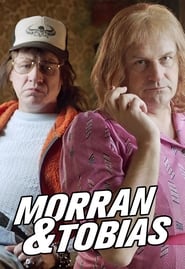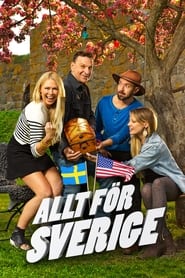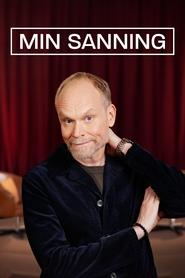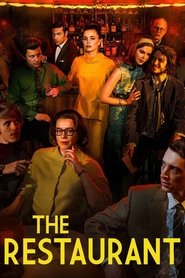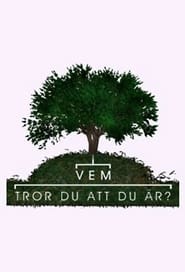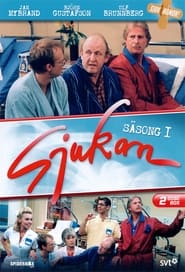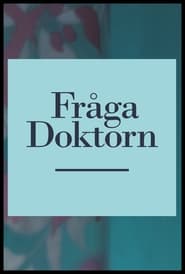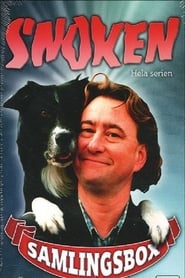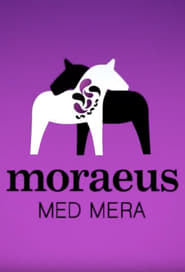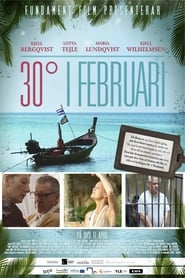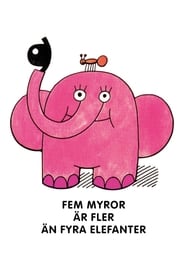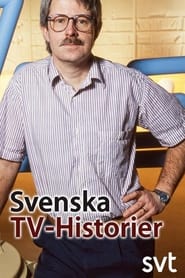Svt1 TV Series - Page 2
-
Morran and Tobias
2014
star 8.2Morran and her son Tobias is two people at the fringes of society. For 34 years, croft 9: 4 had been their home and security, but now the property expropriated by the municipality of Trosa and stands gaping empty. When we meet Morran and Tobias again, they have sold a small piece of land to the municipality and had the opportunity to move back in a month's time. There are many emotions that torn up when the household goods will be extracted to the meeting with the old life in the house. Yet we encounter a profound warmth and love of these two unusual that have chosen to survive. With Johan Rheborg and Robert Gustafsson. -
Smartare än en femteklassare
2011
star 5A Swedish game show based on "Are You Smarter Than a 5th Grader?" -
Snacka om nyheter
1995
star 4Snacka om nyheter was the Swedish version of the BBC series Have I Got News for You, broadcast by Sveriges Television. It was first broadcast on March 5, 1995 on TV2 and hosted by Stellan Sundahl. On February 22, 1999, Stellan Sundahl died, days after taping an episode that was shown the day before he died. The show was put on hiatus and the three remaining episodes were replaced by commemorative programmes. The show returned in November 2000 and was hosted by Sven Melander who would continue hosting it until the show's cancellation. The last programme was broadcast on December 21, 2003. Snacka om nyheter took many rounds from the British original, including the "Film Round", "Tabloid Headlines", "Odd One Out", "Missing Words" and "Caption Competition". Other elements borrowed from Have I Got News for You were the opening that included the phrase "Good evening and welcome to Snacka om nyheter" followed by a punch-line and the three "news reports" in the beginning as well as the humorous delivery of the scores. I -
Robins
2006
star 7.8Robins is a Swedish late-night talk show which premiered on SVT2 on August 23, 2006. The host is the young stand-up comedian Robin Paulsson from Malmö. The show's format is similar to that of other late-night shows, Robin makes jokes about recent news, shows sketches, and talks to a guest in the studio. One of the most popular sketches in the show features Robin appearing as Swedish football player Zlatan Ibrahimović. -
Allt för Sverige
2011
star 6Allt för Sverige is a Swedish reality show based on the original Norwegian format Culture Shock:Norway. The first season of Allt för Sverige premiered on Sveriges Television SVT1 on October 30, 2011, and the last episode aired on December 18, 2011. The series is about Swedish Americans who return to their Swedish roots. In the program, they give the participants more about their families but in each episode one in the group must leave the show and therefore know less about their ancestry. -
Married at First Sight Sweden
2014
star 7Six singles who have tried everything in the search for great love are matched by a team of experts. In front of the television cameras, they will then get married, even though they have never met before. The couple will live as husband and wife for four weeks. If love arises, the experiment has been successful, if not - they must divorce. Could an arranged marriage be the way to great love? -
The Restaurant
2017
star 7.4Monday May 7, 1945 – the Second World War finally comes to an end and a new, brighter future beckons. In the midst of central Stockholm celebrations, two strangers come together with a quick kiss, parting company immediately after. Upper-class girl Nina and kitchen hand Calle don’t yet know that their brief encounter will come to have tumultuous consequences. -
Who Do You Think You Are?
2009
star 10A Swedish version of the British genealogy documentary series Who Do You Think You Are?, where famous people are searching for truths and hidden stories about their family history. -
Thicker Than Water
2014
star 6.5The beautiful island of Sunnanö in the Swedish archipelago is home to a popular B&B run by Anna-Lisa and her son Oskar. Anna-Lisa has summoned her daughter Jonna, an actress, and son Lasse, an opportunist, to the island. It is the first time in years that they are together again. When Anna-Lisa is found dead one morning, the siblings learn that she had terminal cancer: Her will stipulates that all three siblings must run the family B&B together for a year, or they won't inherit it at all. It is a mother’s last effort to reunite her children. But it will also confront them with the family’s unsolved past, present forces of attraction, and a very dark secret buried in a most unfortunate place... -
Fråga doktorn
2003
Fråga doktorn
2003
-
Snoken
1993
star 5.6Aided by his dog Tubbe, private detective Anders Grip solve mysteries in Stockholm from a house boat. -
30 Degrees in February
2012
star 6.5Follow a group of Swedes who've left the snow and cold of Scandinavia for the warm, sandy beaches of Thailand in the dead of winter. Why? To embark on a life-changing adventure, a fresh start and a new life, of course. -
Fem myror är fler än fyra elefanter
1984
star 8.2Fem myror är fler än fyra elefanter or Fem myror was a 1973–75 Swedish TV-series for children, hosted by Magnus Härenstam, Brasse Brännström and Eva Remaeus. The TV-series included songs and sketches with education about letters, numbers, positions, etc. Fem myror är fler än fyra elefanter was broadcast first on 19 November 1973 on TV2 by Sveriges Television and it was also broadcast as Julkalendern 27 November –24 December 1977. Fem myror is able to buy on VHS and DVD and there are also PC games. -
Svenska tv-historier
2015

